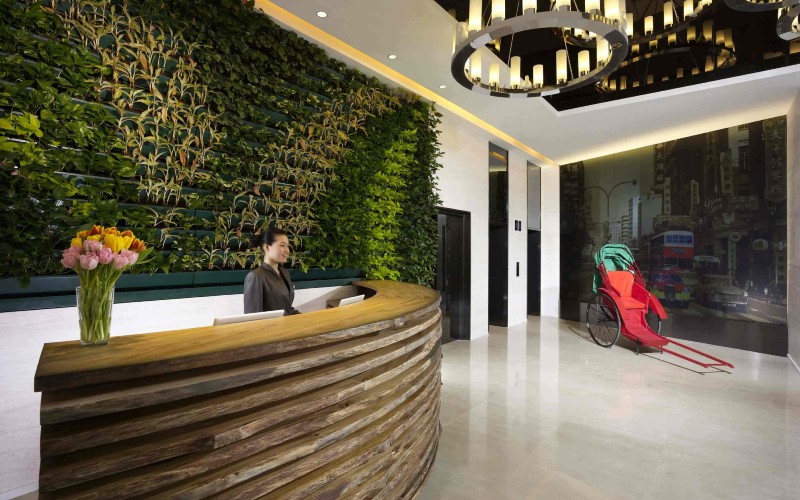Demand from the UK’s key source travel markets is set to defy inflationary pressures over the next 12 months, with emerging markets a particular driver of global growth, according to findings outlined in SiteMinder’s Changing Traveller Report 2023.
However, the British accommodation industry must up its game in order to satisfy the expectations of a new breed of tech-savvy travellers, the company’s UK spokesperson has warned.
SiteMinder’s Changing Traveller Report 2023, released today, is based on the world’s largest accommodation-specific survey, delving into the behaviours and preferences of more than 10,000 travellers across 12 key markets: the UK, US, Germany, France, Italy, Spain, China, India, Indonesia, Thailand, Australia and Mexico. The survey was powered by Kantar on behalf of SiteMinder, the world’s largest open hotel commerce platform.
A key trend which emerges from the report is that high-growth Asian markets will have a transformative effect on the accommodation industry globally, laying down the gauntlet for British hoteliers.
According to the data detailed by SiteMinder, some 78% of Indian travellers intend to travel more this year than last, a figure which is identical amongst Chinese respondents, whilst in Indonesia the same is true for 65% of travellers. This is compared to a global average of 57% intending to travel more over the next 12 months in comparison to the year just gone by. In Britain, this figure is 47%, in France it’s 41%, and in Germany 37%.
Further, a majority of both Chinese and Indian travellers plan to travel internationally over the next 12 months, at 80% and 70% respectively. In the case of China, this represents a more than threefold increase from 13% last year (this year is the first time India has been included in the survey). In comparison, globally, 65% of travellers surveyed intend to travel internationally during the next year.
A key characteristic of these high-growth emerging source markets is their openness to technology being used to enhance the guest experience, from research and booking through to the stay itself. For example, when researching accommodation, over 92% of travellers from China, India, Indonesia and Thailand will use social media at some point, compared to 46% of Brits.
Likewise, the use of AI during the accommodation research process is prominent among all four Asian markets surveyed, averaging above 84%, compared to just 24% of UK respondents who said they were likely to make use of this tool, versus a clear majority of 60% who are unlikely to do so.
And, with regards Virtual Reality and Augmented Reality, a majority of respondents in the Asian markets would be happy to use these to explore properties before booking, including above 60% in India, Indonesia and Thailand. This is compared to 22% of British respondents.
With regards to communications with their chosen property, a majority of Chinese (52%) and Indian (51%) respondents said they would be happy to receive personalised offers by email, compared to 27% of Brits, and 35% globally. Similarly, whilst a majority (70%) of British travellers support the use of their personal data to enhance their stay, doubts around this are much lower in Asian markets, where this figure rises to above 92% in China, India, Indonesia and Thailand.
When it comes to travellers’ preferences regarding their on-site experience, we see the same tendencies repeated. Hybrid or fully-automated check-in processes are preferred by majority of travellers from Indonesia (73%), China (68%), Thailand (60%) and India (54%), whilst in the case of British travellers, a manual process allowing engagement with staff was preferred by the majority of respondents (57%).
Likewise, whilst 18% of UK travellers are open to Virtual or Augmented Reality experiences on-site, this figure amongst Chinese travellers is 56%, amongst Indian respondents 50%, and over 40% amongst Thai and Indonesian respondents. Furthermore, over 40% of Chinese respondents would be open to VR/AR replacing a real life stay, as would almost a third of Indian travellers, 27% of Thai travellers and 19% of Indonesian travellers, compared to only 5% of British respondents.
James Bishop, SiteMinder’s vice president of ecosystem and strategic partnerships, says: “The growth of international travel in all of the UK’s leading source markets is an encouraging sign for British accommodation businesses.
“However, to ensure they capture these returning travellers, as well as new travellers from high-growth Asian markets, hoteliers would do well to invest in technology to drive visibility online, as well as ensure a consistent, quality and frictionless digital experience for potential guests, from their first encounter with the property, through to booking and beyond.
“The traveller of today and the future is clearly mobile and digital-first, and it is critical that hoteliers across the UK are able to meet them where they’re at, which is on their technology devices.”


